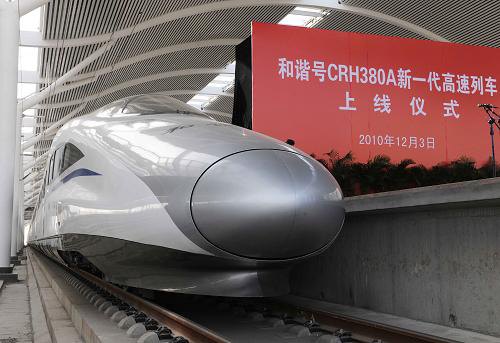Prosecutors investigate Vatican Bank mafia link
Prosecutors investigate Vatican Bank mafia link
Anti Mafia prosecutors have asked the secretive Vatican Bank to disclose details of an account held by a priest in connection with a money laundering and fraud investigation, it emerged on Sunday.
The official request was made more than a month ago but so far the Vatican
Bank, known as the Institute for Religious Works, has refused to disclose
any records of the account held by father Ninni Treppiedi – who is currently
suspended from serving as a priest.
Investigators want to know more about vast sums of money that are said to have
passed through his account to establish if they were money laundering
operations by on the run Mafia Godfather, Matteo Messina Denaro.
Bankers Declare U.S. & Europe Conquered
Bankers Declare U.S. & Europe Conquered
World government now an open secretPaul Joseph Watson & Alex Jones
A recent CNBC clip in which financial analysts admit to viewers that America is under the control of a group of central bankers who are building a world government is a damning insight into how the establishment has dispensed with any pretense of trying to hide their agenda as it is finalized.
During the video, the host asks guests, “Do we all work
for central bankers – is this global governance at last – is it one
world – the central bankers in charge….aren’t we all just living and
dying for what the central banks do?”
“To answer your question, we are absolutely slaves to central banks,” responds the guest.
“We beholden to what central bankers and policy makers do rather than the fundamentals in the economy,” adds another.
Obama Front Group Attacks Drudge For Linking To Infowars
Obama Front Group Attacks Drudge For Linking To Infowars
Political establishment in D.C. upset with Internet maverickPaul Joseph Watson
The political establishment in Washington D.C. is not
happy with Internet trailblazer Matt Drudge for linking to Infowars.com,
with the Obama front group Think Progress deeming it necessary to
devote an entire article to whining about the fact that Drudge promotes
alternative media sources.

In a piece entitled, Drudge Funneled At Least 30 Million Visitors To Conspiracy Websites In The Last Year,
Think Progress’ Aviva Shen throws her toys out of the pram at the fact
that, “Drudge drove over 30 million page views to World Net Daily and
InfoWars in the last year.”
Shen points out that a single Drudge link can drive as
many as 500,000 page views to an article, and that Drudge himself has
been called “the Walter Cronkite of his era.”
Shen divulges how Think Progress conducted a study which
“found that, throughout the year, Drudge frequently and consistently
linked to conspiracy sites,” as if it was some dark and dirty secret
that Infowars and WND stories had appeared on DrudgeReport.com.
UAE State Terrorism – Online Activist Stripped of Citizenship – Sent into exile
UAE State Terrorism – Online Activist Stripped of Citizenship – Sent into exile
Comoros Islands Government Agrees to Provide UAE Terror Victims ‘Exile’ Passports for $200 million Cash Deal
… by Jim W. Dean, VT Editor … featuring Press TV
We have a common saying around here at VT, “You just can’t make this stuff up!”
Every time we think a top shocker will never be broken along comes another one to prove us wrong.
Autocratic governments being hostile toward reform is not a new story by any means. It’s the historical norm.
But the UAE is a unique example. Despite the one man rule the economic transformation there has been incredible.
This is a country where once a major cause of death was blood poisoning from untreated tooth abcesses, a result of high consumption of dates and poor oral hygiene.
Condi Rice, Monster in Disguise
Condi Rice, Monster in Disguise
Genocide Denier Condoleezza Rice, Unworthy to Teach at Stanford
by Harut Sassounian Publisher,
The California Courier
In her newly published 750-page book, “A Memoir of My Years in Washington: No Higher Honor,” former Secretary of State Condoleezza Rice proudly describes her efforts to defeat Armenian Genocide resolutions on two separate occasions.With great relish, she brags about her success in undermining the acknowledgment of the Armenian Genocide by the U.S. Congress in 1991 and 2007.
A close scrutiny of Rice’s arguments exposes her flawed judgment and ethical lapses.
In her memoir, she relates that her first experience “with this problem” was in 1991, when she worked in the White House as acting special assistant to Pres. George H. W. Bush. Her task was “to mobilize an effort to defeat the resolution in the House of Representatives.”
Gloating over her triumph, she depicts herself as battling..
“the powerful Armenian American lobby” that “has for years pressured Congress to pass a resolution branding the Ottoman Empire’s mass killings of Armenians starting in 1915 as genocide.”
World Economies on Life Support
World Economies on Life Support
by Stephen Lendman
Since crisis economic conditions erupted in fall 2007, resolution has been sorely lacking.
US corporations and America’s super-rich benefitted from over $3 trillion in tax cuts.
Anywhere from $9 trillion to double or triple that amount went to bankers that caused the crisis.
Ordinary Americans have been largely left out. The nation’s economic engine stalled. Recovery is more illusion than reality. Increasingly it looks dangerously troubled. More on that below.
Financial analyst Martin Weiss said he’s “never seen anything like the whirlwinds and dark clouds now encircling the so-called advanced economies of the world.”
Al-Alam and Reuters Report Hillary Clinton Convoy Attack in Israel
Breaking/Confirmed: Sec Clinton Assassination Attempt in Israel (Updated)
“Shoes and Tomatoes in Cairo – Bullets in Israel”
ALLEGED ASSASSINATION ATTEMPT
Al-Alam and Reuters Report Hillary Clinton Convoy Attack in Israel
By Gordon Duff, Senior Editor
Israeli radio and Reuters broke the story then went mysteriously silent, an assassination attempt inside Israel, on Secretary of State Clinton.Soon afterward, Iran’s national network, al Alam went public with a translated version which is being boycotted by news services.
Details on the unsuccessful murder attempt on America’s top diplomat below but first some background.
Possibly responsible for the assassination attempt on Clinton is this tale of deceit by Rep. Michelle Bachmann as outlined by CNN’s Andersen Cooper:
US: Fight The Fiat
US: Fight The Fiat – by Lewis E. Lehrman
 Papering over U.S. debts and trade imbalances will take more bills than we can print.
Papering over U.S. debts and trade imbalances will take more bills than we can print.The Economic Crisis We Endure Today is only the latest chapter in the century-long struggle to restore financial order in world markets-a struggle whose outcome is inextricably bound up with U.S. prosperity and the promise of the American way of life.
As we think through the consequences of financial disorder, what come to mind are the economic heresies of fascism and bolshevism, and the catastrophic world wars of the 20th century. These historical episodes compel us to remember that floating exchange rates and competitive currency wars became the occasion for violent social disorder and revolutionary civil strife in the first half of the 20th century. They remind us that natural resource rivalry, monetary depreciation, mercantilism, and war clouds have appeared together from time immemorial.
US: Transportation Secretary Wants Us to Be Like Communist China
US: Transportation Secretary Wants Us to Be Like Communist China – by Amy Payne
 China’s
attempt at a high-speed rail network is fraught with corrupt officials,
impossible costs, and deadly safety failures. But U.S. Transportation
Secretary Ray LaHood wishes America would follow it as a model.
China’s
attempt at a high-speed rail network is fraught with corrupt officials,
impossible costs, and deadly safety failures. But U.S. Transportation
Secretary Ray LaHood wishes America would follow it as a model.LaHood told The Cable last week: “The Chinese are more successful [in building infrastructure] because in their country, only three people make the decision. In our country, 3,000 people do, 3 million. In a country where only three people make the decision, they can decide where to put their rail line, get the money, and do it. We don’t do it that way in America.”
US: Fast and furious is not a D.C. law firm
US: Fast and furious is not a D.C. law firm – by Ann Coulter
 Most
Americans don’t care about whether Attorney General Eric Holder is
hiding Fast and Furious documents because they don’t understand the
story.
Most
Americans don’t care about whether Attorney General Eric Holder is
hiding Fast and Furious documents because they don’t understand the
story.Until someone can tell us otherwise, there is only one explanation for why President Obama’s Bureau of Alcohol, Tobacco, Firearms and Explosives gave thousands of guns to Mexican drug dealers: It put guns in their hands to strengthen liberals’ argument for gun control.
Precisely because this is such a jaw-dropping accusation — criminality at the highest level of government to score a political point — Republicans refuse to make it.
US: Difficult Economic Lessons
US: Difficult Economic Lessons – by Walter E. Williams
 One
of the more difficult lessons to teach economics neophytes — and, many
times, trained economists — is that economic theory cannot say anything
definitive about subjective statements, such as what’s better, good, bad
or worse. Let’s try a few examples to make the point.
One
of the more difficult lessons to teach economics neophytes — and, many
times, trained economists — is that economic theory cannot say anything
definitive about subjective statements, such as what’s better, good, bad
or worse. Let’s try a few examples to make the point.Cabernet sauvignon wine is better than fume blanc. Turkey is better than pork. Matter in the solid state is better than the plasma state. Each of those statements begs the question: Where’s the proof? With subjective statements such as those, disagreements can go on forever. It’s simply a matter of personal opinion. One person’s opinion of what’s better or worse is just as good as another’s.
US: Romneyconomics: Good but incomplete
US: Romneyconomics: Good but incomplete – by Lewis E. Lehrman
 Mitt
Romney has articulated the choice we will make in November. We can
choose President Obama and a European future—i.e., high unemployment,
demographic winter, big government commanding over 50 percent of future
output, a welfare state engineered and manipulated by the Washington
bureaucracy, the end of American leadership, and, ultimately, national
insolvency. Or we can embark once again on the road to rapid economic
expansion, through pro-growth tax reform, smaller government, a balanced
budget, and sound money. What we need, Romney argues, is an
entrepreneurial economy based on the free price mechanism, free markets,
free and fair international trade. For Romney the goal of rapid
economic growth is full employment, a strong national defense, and a
rising American standard of living. These policies are necessary. But
are they sufficient?
Mitt
Romney has articulated the choice we will make in November. We can
choose President Obama and a European future—i.e., high unemployment,
demographic winter, big government commanding over 50 percent of future
output, a welfare state engineered and manipulated by the Washington
bureaucracy, the end of American leadership, and, ultimately, national
insolvency. Or we can embark once again on the road to rapid economic
expansion, through pro-growth tax reform, smaller government, a balanced
budget, and sound money. What we need, Romney argues, is an
entrepreneurial economy based on the free price mechanism, free markets,
free and fair international trade. For Romney the goal of rapid
economic growth is full employment, a strong national defense, and a
rising American standard of living. These policies are necessary. But
are they sufficient?Romney’s analysis emphasizes the character of presidential leadership, the need for hands-on White House direction of national economic policy. Workable economic policies require not only the right goals but also a strong president capable of leading Congress and the nation in a new direction—away from Obama’s backward-looking statism, and forward to pro-growth tax policies, budgetary equilibrium, and sound monetary policies. Regulations must be radically simplified. The tax code must be comprehensively reformed—with a larger base, fewer loopholes, and lower rates.
US: First Amendment & Federal Elections
US: First Amendment & Federal Elections – by Derwood S. Chase, Jr.
 Dear Editor,
Dear Editor,I write in regard to your June 4th story “Council OKs Resolution Against Citizens United Ruling” in which the U.S. Supreme Court found that the First Amendment prohibits the federal government from restricting independent political advertising paid for by corporations or labor unions.
Right now the United States Congress is considering 16 amendments to overturn Citizens United. Most of them give Congress unlimited power to control spending by anyone – individuals, businesses, unions or groups – on federal elections. Two of the amendments even propose prohibiting private spending on elections.
The Toxic Transition in Venezuela
If a narco-state or violent
crackdown emerges in Venezuela, the White House will no longer be able
to avert its attention from the mess or to ‘lead from behind.’
Searching for Gorbachev in Caracas
The Bolivarian Revolution risks breaking to pieces. With each passing day, Caracas more closely resembles Moscow circa 1991.
Venezuela has led the world in inflation for every year since 2007, thanks to the expansionary fiscal policy of his “Bolivarian Revolution,” with consumer price index growth topping 26 percent in January 2012. Last year CPI growth outpaced that of wages by 40 percent, leaving people unable to afford basic goods. Chavez reacted as any good economist, and effectively “banned inflation.” When his Fair Prices and Costs Law took effect in November 2011, the government acquired authority to pre-approve all retail prices in the country. Predictably, this has created shortages of food and other consumer staples, as producers and retailers have no incentive to bring products to market that they cannot profitably sell. The Bolivarian Revolution risks breaking to pieces. With each passing day, Caracas more closely resembles Moscow circa 1991.
The Hayek Effect: The Political Consequences of Planned Austerity
Why the political revolt in Greece may not be a fluke, but a harbinger of more revolts to come.
Eurozone Bonds: Learning from Pre-Nuptial Agreements
The notion of a European ‘tribe’ is not on the horizon.
There are historical precedents for mutualizing debts. Alexander Hamilton’s assumption of states’ debts in 1790, for example, is often mentioned as a model. There are significant differences, however, between that situation and the one the European Union is facing now. While the United States eventually managed to shape an “American tribe”—though 70 years after Hamilton, a civil war was fought that shaped this new tribe’s eventual features—the notion of a European "tribe" is not on the horizon.
Mistaken Ideas about Money-Market Funds
Proposed regulations by the SEC
are bad for investors, threaten the ability of money-market mutual funds
to provide capital, and would pose serious economic risks.
But now, Washington bureaucrats threaten to impose major changes to the structure of these funds, supposedly to decrease risk in the financial system. Remarkably, the current discussion comes just two years after the Securities and Exchange Commission tightened credit standards, shortened maturities, and increased disclosure requirements for money-market mutual fund assets.
If You Don’t Buy Insurance, Will You Really Pay the Tax?
Generally speaking, if you owe the IRS, it will get the money from you—with the possible exception of the ObamaCare tax.
Generally speaking, if you owe the IRS, it will
get the money from you—with the possible exception of the ObamaCare tax.
Though ObamaCare’s individual mandate imposes a tax on people who do
not purchase government-approved health insurance, the law explicitly
neuters the IRS’s ability to collect the tax.
Bizarre? Yes. And it matters. If policymakers expect uninsured young
people to buy health insurance when it is even more expensive than it is
today, the threat of serious consequences for not doing so must be
real. Yes, the threat that the IRS might come after you if you do not do
what you are told looks real at first glance. But Democratic
politicians, fearing public backlash for making the mandate too
intrusive, pulled its teeth.When High-Interest Payday Lending Pays
Lenders charge high interest rates for a reason.
Sure, interest rates on these loans are high. Wonga, for instance, plans to charge small businesses interest rates between 0.3 and 2 percent a week.
No one wants to pay to borrow money. And most borrowers–consumers and businesses alike–would prefer to pay less than Wonga is charging. In fact, I’ll go out on a limb here and say most borrowers would prefer an interest rate of zero.
Tuesday, July 17, 2012
Writing Well Is the Best Revenge
by David R. Henderson
by David R. Henderson
For
the first years of its existence, radio seemed like an economic loser
without government subsidy. No one could figure out how to make
listeners pay, and, consequently, radio hosts and entertainers usually
worked for free. In 1922, Herbert Hoover, then Secretary of Commerce,
asserted, "Nor do I believe there is any practical method of payment
from the listeners." But that same year, AT&T discovered that it
could make money by selling ad time on radio. It sounds obvious now, but
it wasn't then. After that, radio thrived and is still thriving.
 John Lott tells that story and many others — and tells them well — in his latest book, Freedomnomics. Although the title is clunky — it's obviously a version of the more famous title Freakonomics
— that's all that's clunky. Lott's book is an analytic tour de force as
he walks the reader through the economics of issues as varied as the
origin and development of American public schools, why government grows,
crime, gun control, political influence, gasoline prices, the price of
wine at restaurants, and voting machines. In each case, he explains
concepts that most people don't understand but want to understand
— concepts that help us figure out our world. And, in the process, he
makes the case — summed up by the book's subtitle — for "Why the Free
Market Works and Other Half-Baked Theories Don't."
John Lott tells that story and many others — and tells them well — in his latest book, Freedomnomics. Although the title is clunky — it's obviously a version of the more famous title Freakonomics
— that's all that's clunky. Lott's book is an analytic tour de force as
he walks the reader through the economics of issues as varied as the
origin and development of American public schools, why government grows,
crime, gun control, political influence, gasoline prices, the price of
wine at restaurants, and voting machines. In each case, he explains
concepts that most people don't understand but want to understand
— concepts that help us figure out our world. And, in the process, he
makes the case — summed up by the book's subtitle — for "Why the Free
Market Works and Other Half-Baked Theories Don't." The Invisible Heart. by David R. Henderson
Are you ready for a novel that appeals to your intellect and your heart at the same time? Have I got a book for you. It's The Invisible Heart
(MIT Press, 271 pages, $22.95) by economist Russell Roberts. Yes, it's
an economics novel. In other words, when you read this novel, you will
learn a lot of economics, in a very pleasant, philosophical way. On top
of all that, the one romantic scene, even though it reveals no skin, is a
real turn on.
Until
recently, the main economics novels in existence were written by
economists William Breit and Kenneth Elzinga under the pseudonym
Marshall Jevons. The Marshall was for Alfred Marshall and the Jevons was
for William Stanley Jevons, both prominent British economists in the
late 19th century. The Marshall Jevons novels are mysteries
that the reader can solve if he pays attention to detail, the typical
requirement for solving a mystery, and, furthermore, understands a key
principle or two of economics. In one of their novels, for example, you
can spot a lie by knowing the answer to the joint supply problem in
economics, which says that when the demand for, say, beef goes up, the
price of leather falls. But no one has attempted to write an economics
novel about a love story.
Who Wants the U.S. To Make War in Syria? by Michael S. Rozeff
There are people
vigorously promoting America’s entry into new wars in Syria and
Iran. Many of them eagerly advocated the U.S. aggressions against
Iraq and Afghanistan. Despite the failures of these wars to achieve
the projected goals, they are urging new U.S. wars. They are the
neoconservatives. They applaud U.S. military action in places like
Libya, Yemen, and Somalia. The neoconservative paradigm also looks
favorably upon a U.S. military presence in countries like Uganda,
Ethiopia, Kenya, Sudan, and the Central African Republic.
Neoconservatives
seek democracy almost everywhere, with the choice and emphasis depending
on their interpretation of American interests and with lip service
to costs. Zachary
Selden writes
Outsourcing for Dummies (Including the Willfully Ignorant)
Why NOT Make Olympic Uniforms in China?
by Daniel J. Ikenson
Patriotism, it has been said, is the last refuge of
scoundrels. Indeed, with 86% of the American public disapproving of
Congress' performance, refuge-seeking politicians have wrapped
themselves in the flag to denounce the fact that the U.S. Olympic team's
uniforms were manufactured in China.
Senate Majority Leader Harry Reid, D-Nevada, said he was "so upset...
they should take all the uniforms, put them in a big pile and burn them
and start all over again." House Speaker John Boehner, R-Ohio, clucked
of the Olympic committee at a news conference that "You'd think they'd
know better."Let Them Eat Hope by Gene Healy
After much soul searching, Barack Obama has figured out where his presidency has gone wrong — and he shared it with CBS's Charlie Rose and viewers across the fruited plain Sunday morning.
"The mistake of my first term — couple of years," the president
allowed, "was thinking that this job was just about getting the policy
right." At times, Obama confessed, he'd forgotten that "the nature of
this office is also to tell a story to the American people that gives
them a sense of unity and purpose and optimism, especially during tough
times." He needed to do "more explaining, but also inspiring.""Because hope is still there," the first lady added.
Obama and TV News
The Obama White House is both
very aware and very thin-skinned about what reporters, and particularly
TV reporters, say about it.
Regardless of the reason, it seems clear that the Obama administration put some serious thought into how to manage their policy shift. This fits into a pattern of Obama and his team aggressively micro-managing their relationship with TV news. As CNN’s Jonathan Wald told Byers, “The White House is very careful who it picks for which message.” As this story shows, for all the talk about Twitter, YouTube, and Facebook, television remains the key medium by which Americans get not only their news, but also their impressions of our political leaders.
Paul Krugman’s Intellectual Great-Grandfather
You’ve probably never heard of
Walter Weyl, but he invented the role of liberal economics popularizer.
His literary descendants include Stuart Chase, John Kenneth Galbraith,
Paul Samuelson, and Paul Krugman.
Is this a summary of a recent column by Paul Krugman? No. Substitute “the plutocracy” for “the 1 percent,” and you’ll accurately describe the ideas of Walter Weyl, the most important Progressive thinker you’ve never heard of.
Are Americans Too Dumb for Democracy?
The best hope for democracy
still lies in the unregulated marketplace of ideas, in which the maxim
‘Let the buyer beware’ remains the surest safeguard against cheats and
charlatans, including those waving their PhDs in your face.
Of late, there has been a spate of articles and op-ed pieces that suggest the answer to this question is an emphatic yes: The majority of Americans are simply too hopelessly ignorant to make the kind of intelligent decisions that are necessary to preserve a healthy democratic system.
Judging from the tone of these articles, America is currently suffering not only from an epidemic of obesity, but an epidemic of stupidity.
It’s Not a Welfare State, It’s a Special Interest State
The concept of ‘welfare’ has become an open, bottomless vessel into which every desire can be poured.
No one opposes the most basic version of a welfare state, one that provides essential public facilities, cares for the destitute and unfortunate, educates children, and protects public health and safety. Indeed, as the Supreme Court said in 1881, during an era regarded by the Left as a dark-age trough, “It will not be denied by any one that these are public purposes in which the whole community have an interest.”
Checks, Balances, and Audits
Here’s an approach that accepts the reality of the Administrative State while restoring the principle of checks and balances.
Our modern government has left the original model behind. We have what is sometimes called the Administrative State, in which power is exercised by independent agencies that are largely beyond the reach of the political process. Examples would include the Federal Reserve Board, the Internal Revenue Service, the Transportation Security Administration, and the Congressional Budget Office.
The Pension Benefit Guaranty Corporation: Who Will Guarantee This Guarantor?
The law requires that the PBGC ‘be self-financing.’ So far, the PBGC has ‘self-financed’ itself into a $26 billion hole.
Who Knew When about the LIBOR Problems?
‘The New York Fed continued to monitor for problems related to LIBOR.’ And then?
The Essential Lesson of the Auto Bailout
What do companies get when they act responsibly? Government-subsidized competition.
His message was clear: The Obama administration’s 2009 decision to bail out the auto industry allegedly saved it from the fate it would have suffered had Romney’s approach—bankruptcy—won the day.
The map below, adapted from the Ohio affiliate of the U.S. Census Bureau, shows automobile assembly plants in the Midwest and South, and helps to illustrate the “industry” in question. Red indicates companies rescued by the bailout; green indicates companies that didn’t participate in the bailout.





 PRINT PAGE
PRINT PAGE CITE THIS
CITE THIS





No comments:
Post a Comment